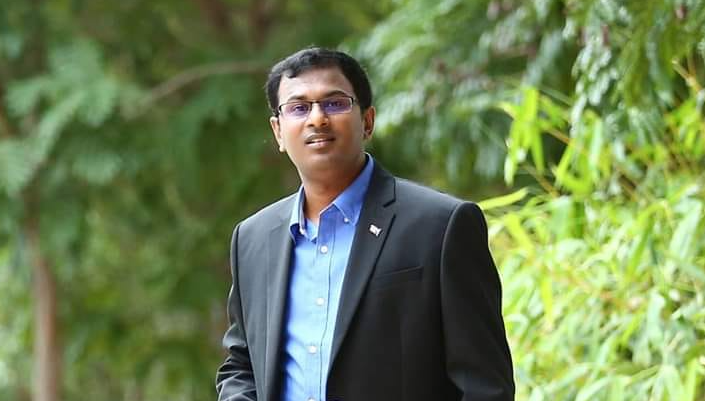Introduction
Indian American businessman and Congress candidate Kandi Srinivasa Reddy has come under intense scrutiny following allegations of H-1B visa fraud. Investigations have uncovered an elaborate scheme involving multiple registrations to unfairly secure visas, raising serious questions about immigration processes and legal loopholes.
Scheme Overview
Reddy’s companies allegedly exploited legal gaps by filing thousands of applications to increase their chances in the H-1B visa lottery system. Bloomberg’s report ties him to over 300 visas secured since 2020, highlighting a systemic abuse of immigration rules. The strategy involved leveraging multiple corporate entities, many sharing addresses and operational similarities, to create the appearance of independent applicants.
Financial Impact and Manipulation
Employees recruited through Reddy’s firms reportedly received significantly lower salaries compared to industry standards, often averaging $87,000 annually versus the $125,000 typical for similar roles. This has raised concerns about wage suppression and labor exploitation. Critics argue this practice undermines fair competition, leaving qualified professionals underpaid while companies profit.
Beyond financial concerns, the scheme has broader implications for skilled labor migration and ethical employment practices. Reports indicate that many workers faced restrictive contracts, limiting their ability to switch jobs or challenge unfair conditions, effectively trapping them in exploitative arrangements.
Political Career and Defense
Reddy’s position as a Congress candidate from Telangana has added a political dimension to the controversy. His foundation’s work supporting farmers has been praised, but critics argue it is overshadowed by the ongoing investigation. While Reddy denies substantial involvement, claiming he only served as a registered agent for the implicated companies, evidence suggests otherwise. Ownership records and legal documents link him and his wife to the firms, further complicating his defense.
Supporters highlight Reddy’s contributions to rural development and his political aspirations, emphasizing his potential to bring change. However, opponents stress the need for accountability, arguing that leaders must exemplify ethical practices both in business and governance.
Broader Implications and Reforms
The case has sparked debates about the vulnerabilities in the H-1B visa process. Immigration experts have called for stricter oversight, including audits and transparency measures, to prevent similar schemes. Proposals include limiting duplicate applications, increasing penalties for fraudulent activities, and ensuring fair salary practices to protect foreign workers.
Allegations Against Kandi Srinivasa Reddy
Reddy allegedly exploited the H-1B lottery system through multiple applications, significantly increasing the chances of securing visas. Reports link him to companies like Cloud Big Data Technologies LLC and Machine Learning Technologies LLC, which submitted thousands of entries and secured over 300 visas since 2020.
Visa Scam Operation Details
Investigations reveal that Reddy controlled several entities operating under similar names and addresses. The process, referred to as “multiple registration,” created an unfair advantage for his candidates. Data indicates that median salaries for employees recruited through Reddy’s firms were substantially lower than industry standards.
Legal Defense and Congressional Role
Despite mounting evidence, Reddy maintains his innocence, stating he was only a registered agent for the companies involved. His political background as a Congress candidate from Adilabad and his foundation supporting farmers further complicate the case.
How the Scam Worked
Reddy’s companies, including Cloud Big Data Technologies LLC, allegedly used multiple applications for the same workers to manipulate the lottery process. Between 2020 and 2023, over 300 H-1B visas were obtained through this method.
Financial Irregularities
Employees hired via Reddy’s companies earned an average of $87,000 annually, much lower than the $125,000 paid by regular employers, indicating wage suppression and misuse of staffing firms.
Political Connections and Defense
Reddy’s dual identity as a businessman and Congress candidate from Telangana adds political weight to the investigation. While his attorney claims procedural errors by USCIS, evidence suggests deeper involvement through ownership and control of implicated companies.
Key Allegations
Reddy allegedly managed multiple companies that filed thousands of applications, ensuring higher success rates in visa approvals. Bloomberg reports connect him to over 300 visas obtained through this method since 2020.
Salary Disparities and Fraud Impact
The scam allegedly involved offering salaries below market rates, disadvantaging legitimate employers. Data reveals median salaries of $90,000 at staffing firms compared to $125,000 at regular firms.
Political Ties
Reddy’s political career as a Congress candidate from Adilabad is under scrutiny. Despite his defense of minimal involvement, business records contradict his claims.
Visa Scam Details
Reddy allegedly used multiple companies like Cloud Big Data Technologies LLC to submit duplicate applications, giving candidates higher chances of selection. Over 300 visas were reportedly secured this way since 2020.
Legal Defense and Impact
While Reddy’s lawyer defends the actions as procedural gaps, critics argue the strategy harmed ethical employers. Evidence links Reddy and his wife to ownership of the implicated companies.
Political and Social Influence
Apart from business, Reddy’s political career and foundation work in Telangana add complexity to the investigation. His dual role raises ethical concerns about leadership and accountability.
Conclusion
The allegations against Kandi Srinivasa Reddy underscore the urgent need for reforms in the H-1B visa system to curb exploitation and restore fairness. As investigations unfold, the outcome could influence immigration policies and shape future enforcement measures, ensuring greater integrity in skilled labor migration programs.
